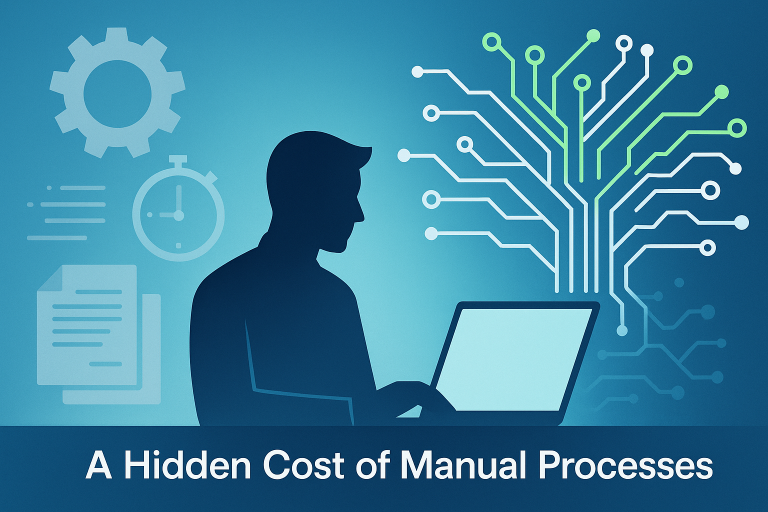Hidden Cost of Manual Processes: Why Smart Businesses Are Embracing AI Automation in 2025
In today’s competitive business environment, the hidden cost of manual processes is higher than ever. Many organizations still rely heavily on manual tasks, unknowingly incurring significant costs. As we step into 2025, smart businesses that embrace AI automation significantly reduce these hidden costs and achieve unprecedented productivity and innovation.
Understanding the Hidden Cost of Manual Processes
Manual processes might seem manageable individually but collectively have a significant impact on productivity, accuracy, and profitability. Common hidden costs include:
- Human Errors: Even minor errors in data entry or invoicing can cause substantial financial losses.
- Wasted Time: Employees spend valuable time on repetitive tasks rather than strategic initiatives.
- Delayed Decisions: Slow manual processes delay critical business insights, impacting competitiveness.
- Increased Operational Costs: High labor and correction costs elevate overall expenses significantly.
Why Smart Businesses Are Embracing AI Automation in 2025
AI automation represents a fundamental shift towards operational efficiency. Here’s why forward-thinking businesses are rapidly adopting AI-driven solutions:
1. Enhanced Efficiency and Productivity
AI automation handles routine tasks like data entry, reporting, customer support, and inventory management seamlessly, freeing employees for higher-value activities.
2. Improved Accuracy
AI systems deliver consistent, error-free operations, enhancing accuracy in financial transactions, customer data handling, and compliance.
3. Faster Decision-Making
AI provides real-time data processing and analysis, enabling businesses to make informed decisions swiftly.
4. Scalability
AI solutions quickly adapt to growing business needs, providing scalable and cost-effective operations.
5. Reduced Costs
By eliminating inefficiencies and minimizing errors, AI automation significantly reduces operational expenses.
Practical Applications of AI Automation
Businesses across various industries are successfully adopting AI automation:
- Customer Service: Automated chatbots offer round-the-clock support, enhancing customer satisfaction.
- Marketing: AI-driven campaigns accurately target customers, increasing ROI.
- Finance: Automated financial tools streamline invoicing, payroll, and reporting.
- Supply Chain: AI optimizes inventory management, forecasting, and logistics, reducing errors and delays.
Steps to Implement AI Automation Successfully
Here’s how your business can smoothly transition to AI automation:
- Identify Tasks: Pinpoint repetitive, time-consuming tasks ideal for automation.
- Select Tools: Choose AI solutions specifically suited to your business needs.
- Prepare Employees: Educate your team about AI automation and address any concerns.
- Pilot and Scale: Begin with pilot projects to demonstrate benefits, then scale automation across departments.
Future-Proof Your Business with AI Automation
By 2025, manual processes will be a clear competitive disadvantage. AI automation positions your business for sustained growth, efficiency, and innovation. Embracing AI now ensures your organization remains ahead and profitable.
Ready to Transform Your Business?
Our digital agency specializes in AI-driven automation solutions tailored specifically to your needs. Contact us today and discover how we can help your business unlock its full potential through AI automation.


